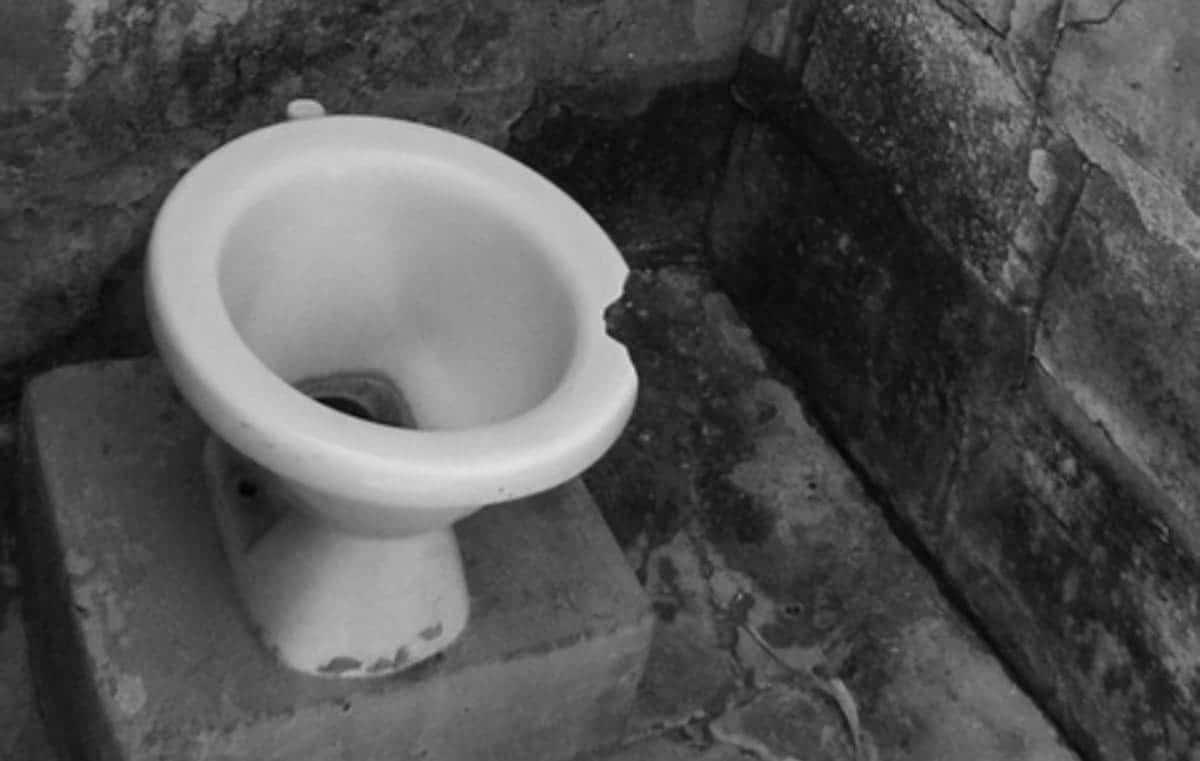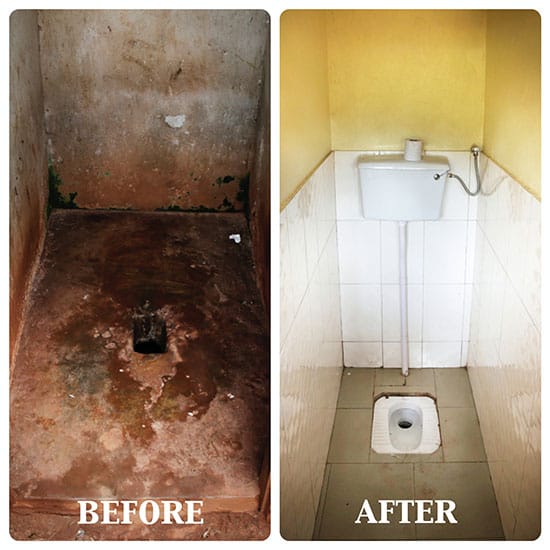I love awkward situations. What makes most people squirm makes me break out in a fit of laughter. I enjoy watching people react in uncomfortable situations and don’t mind entering awkward situations myself. At this point, you’re probably asking yourself two questions. How does this woman have any friends? Is she about to ask us something awkward?!?
Both valid questions. And sure, now that you brought it up, here’s a potentially awkward question: How do you feel about toilets? That’s right. Toilets. They go by different names around the world: squatty potties, latrines, pits, commodes.

Here are some awkward toilet situations I’ve personally encountered in the countries where we work:
- Walking through the slums of Kibera on the outskirts of Nairobi and seeing “flying toilets” — plastic bags of poop — being thrown into gutters, streams, onto neighboring slum-house roofs, or just as far away as possible.
- Throwing away toilet paper in a wastebasket because the plumbing system cannot handle any sort of paper in its pipes.
- Having traveler’s diarrhea and needing to stop an entire tour bus to run to a roadside stand and pay to use the outhouse.
For us, it might be awkward. We may even have been taught that talking about the bathroom is inappropriate. But for billions across the world, the matter of proper sanitation is not only undignified, but deadly.
Here are some statistics that should make you squirm:
- One billion people have no sanitation facilities and defecate in gutters, behind bushes or in open bodies of water. Nine out of 10 of them live in rural areas.
- Less than half of the population in 45 countries has access to adequate sanitation and hygiene.
- Many people who defecate in open bodies of water also gather their drinking water from the same source.
- Diarrhea is the #2 killer of children under the age of 5, killing 4,000 children every day. It kills more children than HIV/AIDs, tuberculosis and measles combined.
- 1 in 3 women worldwide risk shame, disease, harassment and even sexual and physical attack because they have nowhere safe to go to the toilet. Of these, 526 million women have no choice but to openly defecate in public.
- Only 45 percent of schools in the least-developed and low-income countries have adequate sanitation facilities.
We cannot stay silent on this subject any longer, and there’s no better time to discuss it than on World Toilet Day on Wednesday, November 19.
Back in 2000, the United Nations committed to working toward a set of goals (later coined the “Millennial Development Goals”) to reduce extreme poverty and other global atrocities. One of the Millennial Development Goals is “Ensure Environmental Sustainability,” which includes access to clean drinking water and sanitation.
I think there’s a reason the clean water portion of this goal is on track but the sanitation goal is not. As reporter and sanitation advocate Rose George says of more developed nations, “The flush toilet is so good and we can lock it behind a door — but I think we’ve locked it out of conversation, too.”
Matt Damon, famous actor and toilet activist, said this when asked why he’s passionate about sanitation issues: “One is the enormity of the problem, but the other is the availability of solutions.”
Solutions that include teaching children about hygiene and proper toilet use. For instance, the staff at St. Peter’s Naguru Child Development Centre in Kampala, Uganda, teach their Compassion-assisted children about using toilets.
“Most of the time, we start from zero,” center director Rebecca Byamukama explained. “After we received money from Compassion’s Complementary Inventions fund to install proper latrines at our center, some of the children were afraid. They’d never seen a proper latrine before and didn’t know how to use it. When we first showed them toilet paper, they ran out of the stall to grab leaves and sticks to use instead — they thought the toilet paper was too white and clean to use.”

St. Peter’s Naguru Child Development Centre’s latrines
So, let’s talk about it. Let’s get awkward. Because lack of proper sanitation not only spreads disease, but it robs people of dignity.







1 Comment |Add a comment
I’ll join you in awkwardness, and perhaps add a bit more…
A young woman we sponsor mentioned girls unable to stay in school and succeed there due to lack of sanitary cloths to use during menstruation. Imagine a girl entering puberty and trying to deal with that without access to toilets, toilet paper, pads, tampons, underwear, running water, and menstrual education!
So let’s talk about this, too. Let’s get awkward. Because you are so right — lack of proper sanitation impairs health and robs people of dignity.